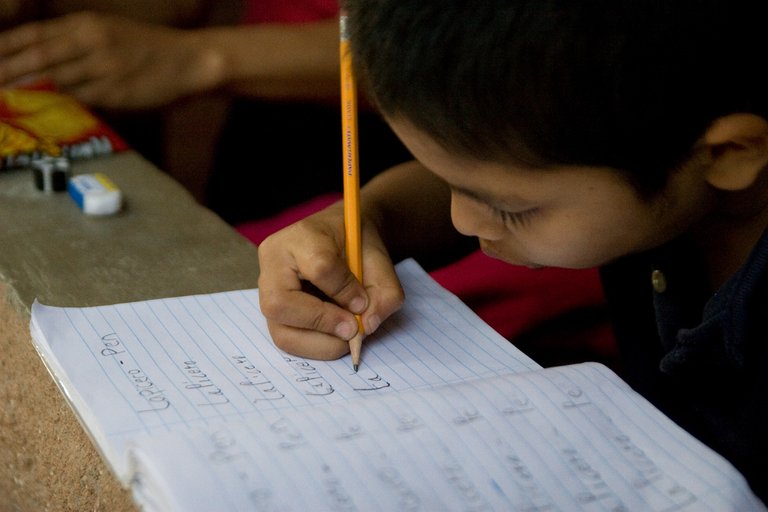Childhood development and reading - writing

The first perception of a space is that of bodily experiences. In the tonico-emotional dialogue of the beginning of life, the child builds his tonic framework, “the stuff of emotions” (AJURIAGUERRA J. DE, MARCELLI D. - Abrégé de
Psychopathologie de l'Enfant, Masson, Paris, coll. Abrégés , 496 p., 3rd ed., 1990.). In the first discussions with his parents, the child will receive the stimuli necessary for his neuromotor, psychomotor and emotional maturation. They will contribute to the development of his bodily experience, the perception of himself. The child will then integrate his body axis around which the body diagram will be built. The organization of space is built on this bodily axis. If the latter is not stable, insufficiently invested, the child will not be able to relate to his environment.
To read and write, children first need to know their body, to feel it, to make large gestures and to have references in this area. It is by handling the book that young children will appropriate it, by putting it in their mouths, dragging it around, sometimes tearing it apart.
In kindergarten and primary,
children need to vary the supports to help their motivation but also so that they create different mental and sensorimotor references. The little ones work fine coordinations by handling the book and have a sensorimotor reference. Picture books, for example, make it possible to make a link in order to access the concept. A poodle and a Dalmatian are dogs (“the concept”) but they are different. The little ones need the cover of the book to find their way around. They memorize it. Books to which are added tactile media (furs, mirror, crumpled paper, etc.) enrich the sensorimotor experience of the child and help him experience the book as a pleasant and playful element.
The older ones, by turning the pages, integrate the direction of reading from left to right. This also allows them to perfect their lateralization. Introduced too early, digital reading can slow down the integration of reading direction and graphic gesture.
The graphic gesture is motorist. It is only secondarily that it leaves a mark on a medium. The education of the graphic gesture must be psychomotor. The bodily experience is the condition of an experience in total space. This experience can then be written down on paper. By the movement provoked in space, by a situation to which he reacts, the child obtains a global experience, concerning his whole body. By refining his gesture, he grows better and better, both the space in which he moves and the trajectory of his hand.
The development of graphics takes place at different stages, at several levels. At the psychological level, the child reaches the social communicative stage (the desire to write) around 5 years old. At the neuromotor level, mastery of the graphic gesture, necessary for cursive writing, is put in place at the end of development, ie around 7 years of age on average. Our French school system is therefore a little ahead of children's development.
Using the digital tablet with young children is not sufficient for learning, it is not sufficiently oriented in space. It is not associated with a bodily experience.
Before 4 years old, it is in my opinion not recommended to use digital media. The child does not have enough body references to understand the implications and will mix up all the information from digital and paper media. From the age of 5, the tablet, like video games on console, should be one game among others, one more book in the context that interests us.
Yo @lamissdo!
This is not an introduction post. When you write an introduction post, please include the following:
That's how intro posts like these won't be flagged as soam. Please rewrite a proper introduction post and tag @proteancreator or @lovesniper when you're done.